Ready to learn more?
Get all the details straight to your inbox!
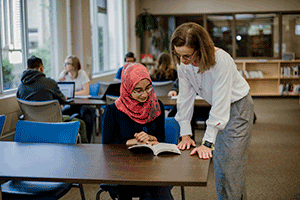
Luther College is recognized for its high standards of teaching, focused research, and one-on-one academic advising. We value and protect this heritage of excellence in scholarship, freedom of inquiry, and faithful seeking after truth.

Free enrolment counselling support and invaluable one-on-one academic advising are available for all programs at Luther College.

To enrol as a Luther College student, simply fill out the University of Regina application form and select Luther as your campus of choice.
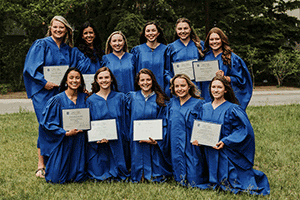
Luther College students are U of R students and receive all the same benefits. Upon graduation you will receive a U of R degree.

Luther College students are eligible for nearly $100,000 in academic awards – in addition to scholarships and bursaries awarded by the U of R.
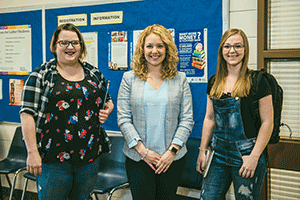
The priority deadline for academic application is March 15. To book a personalized enrolment counselling appointment, contact our Recruitment Office at 1-306-206-2117.

Wondering where to live? Our student residence, The Student Village at Luther College, is considered a great choice for first-year student accommodation. Individual private rooms mean you can stick to your own schedule and you never have to deal with roommate hassles.
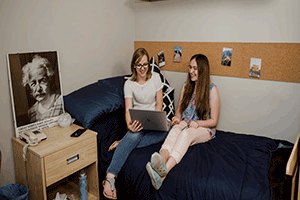
Our student residence, The Student Village at Luther College, welcomes residents from ALL post-secondary institutions in Regina. Rooms come with a meal plan, free laundry, free wi-fi, and a great sense of community.
Get all the details straight to your inbox!

The Nonprofit Voluntary Sector Studies Network (NVSSN) is a community-driven network made up of professionals from the nonprofit and voluntary sector, University of Regina students, faculty members, staff, and campus partners. Our mandate is to provide sector-driven learning and networking opportunities.
The NVSSN aims to contribute to the continuous development of a sustainable and vibrant nonprofit and voluntary sector in Saskatchewan. The NVSSN strives to do so by providing the sector with both formal and informal learning opportunities.
Formal learning opportunities includes the Nonprofit Leadership and Innovation (NSLI) Certificate. We strive to collaborate with the nonprofit and voluntary sector to prepare students for careers and impactful leadership in nonprofit and volunteer organizations. For more information on the NSLI Certificate, click here.
Informal opportunities include networking and connection events that aim to serve as a platform for innovation, connection, support, research, and learning. For upcoming NVSSN events, click here.
Through both formal and informal learning, the NVSSN strives to serve nonprofit sector leaders, U of R students, staff, and faculty members to build their professional knowledge and enhance the quality of life and wellbeing of all people in Saskatchewan.
The NVSSN strives to bring awareness and advocate for the third sector- also known as the nonprofit, community-based sector. The sector provides many public benefits, is woven into the the historical fabric of Canada, is active in myriad areas (e.g., arts/culture, heritage, environment, sports and recreation, faith-based organizations), has $75 billion in revenues, is found in every community, has thousands of staff, and draws on millions of volunteer hours every year. Saskatchewan has at least 8,000 registered charities and nonprofits, has the second highest number of voluntary organizations per capita in Canada and has the highest volunteer rate in Canada.
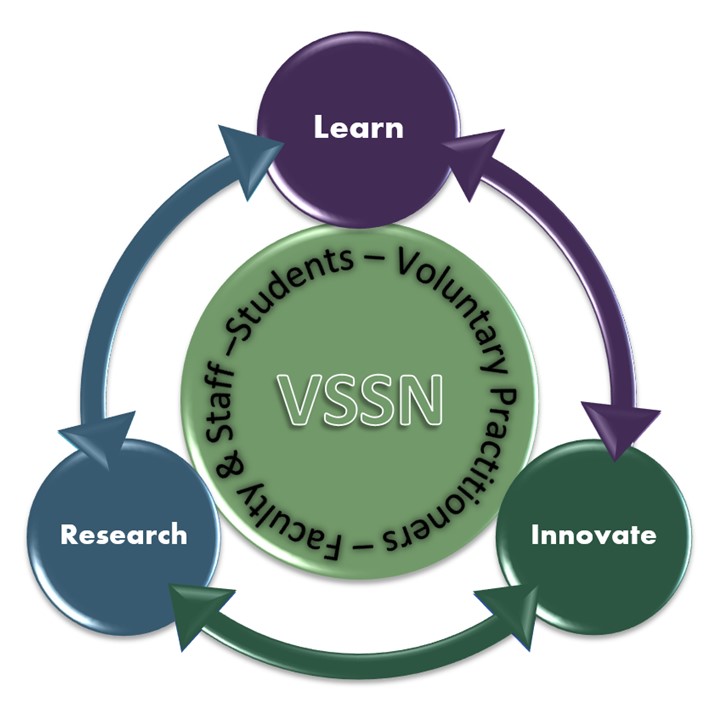
The NVSSN program embraces three inter-related themes – learn, research, innovate. As shown in the figure to the right, students, voluntary sector staff and volunteers as well as university faculty/staff are involved in dynamic and mutually beneficial relationships while learning, researching and innovating. We believe that by enhancing connections among these diverse groups that the potential for reciprocal learning for everyone involved is great – indeed, the creation and sharing of knowledge is multi-directional. This reciprocal learning benefits communities and society as a whole.
Learning at NVSSN is both formal and informal and encompasses different models of course delivery: semester-long courses, online courses, webinars, block classes, evening seminars and ‘weekend university’. There are three main groups of learners at NVSSN:
Community-based participatory action research and community-engaged scholarship are the main paradigms at NVSSN. Community-engaged scholarship is a multi-dimensional, systematic, documented and evaluated process of discovery that is entrenched in both theoretical literature and the real-world that results in products that are public, peer-reviewed, change-oriented and made available to others for further use. These products range from theories about the sector, new legislation and public policies, to community histories and children’s drawings. Depending on the nature of the projects, teams of students engage in community-based research and work closely with faculty and voluntary organization staff and volunteers. The integration of theory and practice is paramount.
Innovation is an essential component because the voluntary sector is undergoing transformational shifts today (e.g., shifts in the charity, social justice, and social enterprise models) yet Canadian research on the voluntary sector is still in its infancy. Complexity, network and ecological theories – to name but three key theories - inform our work. We believe when a diverse group of thinkers - old and young, experienced and inexperienced - sit and dialogue around the same table, new ways of looking at problems and their resolution ensue. Students will develop their leadership skills and voluntary entrepreneurship skills; new public policies and voluntary sector incubators are but two examples of what students can pursue at NVSSN.
Sign up to be part of our mailing list!
Supported by:
